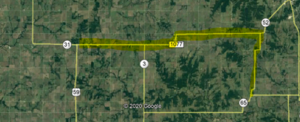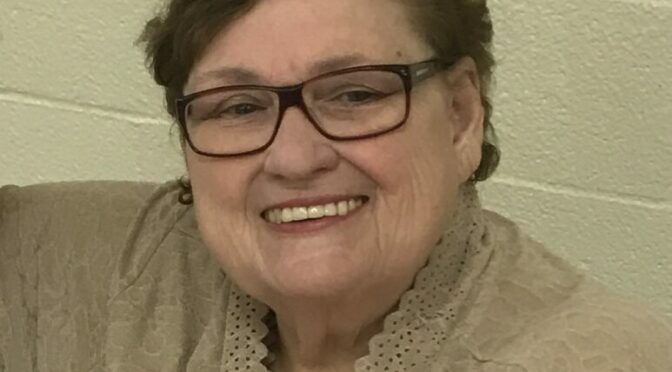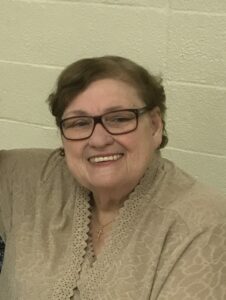Governor Laura Kelly takes action on final bills of regular 2020 session
TOPEKA – Today Governor Laura Kelly took action on the remaining eight bills passed by the Kansas Legislature during the 2020 regular session. She signed five pieces of legislation and vetoed three bills.
The bills Governor Kelly signed are as follows:
House Bill 2018
Amends the Video Competition Act (Act) to prohibit municipalities from imposing additional requirements for the deployment of micro wireless facilities in the public right-of-way and to allow a municipality to require compliance with certain standards.
House Bill 2034
Amends law related to court orders for restitution by criminal defendants. This legislation will become effective upon its publication in the Kansas Register.
House Bill 2137
Amends the Scrap Metal Theft Reduction Act to remove the requirement that scrap metal dealers photograph the vehicle in which a junk vehicle or other regulated scrap metal property is delivered. The bill also continues in existence certain exceptions to the Kansas Open Records Act.
House Bill 2246
Amends and enacts new law pertaining to the oversight, regulation, programming, and authority of various state agencies.
House Bill 2585
Creates and amends law relating to a tax exemption for the tracking and collection of state and federal income tax by certain public utilities and creates law related to the authority of the Kansas Corporation Commission (KCC) to regulate electric public utility rates to allow contract and discounted rates for certain facilities. The KCC is authorized to approve such rates notwithstanding provisions governing its power to require utilities to establish just and reasonable rates to maintain efficient and sufficient electric service and to prohibit variations from established rate schedules.
Vetoes
Additionally, as part of her administration’s commitment to fiscal responsibility and to leading Kansas forward during the COVID-19 pandemic, Governor Kelly vetoed House Bills 2510, 2619 and 2702. Her veto messages are as follows:
House Bill 2510
“House Bill 2510 includes valuable provisions—such as free ACT exams for high school students and a foster care report card—that I would sign into law if they were presented in a standalone bill. The Kansas Promise Scholarship is also a laudable effort to make higher education more accessible to vulnerable Kansans who come of age in the foster care system, and to incentivize Kansas graduates to establish their careers here.
“Although well-intentioned, House Bill 2510 as a whole would annually deplete millions from state funds at a time when Kansas faces a $1.3 billion budget shortfall. I cannot in good conscience sign a bill establishing a new discretionary spending program that is unrelated to Kansas COVID-19 response efforts when such severe financial strain looms in the months ahead. I have made Kansas children in foster care one of the top priorities of my administration. At this time of fiscal crisis we must focus on preserving the foster care programs and services already in place.
“Therefore, under Article 2, Section 14(a) of the Constitution, I hereby veto House Bill 2510.”
House Bill 2619
House Bill 2619 establishes a new Economic Recovery Linked Deposit Loan Program for businesses in response to the economic downturn caused by the COVID-19 pandemic. This 10-year program would make up to $60 million available for low-interest loans to businesses and agricultural producers through the Pooled Money Investment Board.
“I support efforts to provide economic relief to Kansas small businesses and agricultural producers who have been hard hit by the COVID-19 pandemic. However, federal funding made available to Kansas through the CARES Act is a more appropriate funding source for this effort. With a $1.3 billion budget shortfall looming, we must protect every state resource at our disposal to make ends meet in the months ahead, including earnings from the state’s investment portfolio.
“House Bill 2619 also grants authority to the Kansas State Treasurer to administer the loan program. These programs have historically been administered by the Kansas Department of Commerce, and that should continue in our COVID-19 response effort.
“Finally, this bill includes a problematic income tax exemption for for-profit banks. While the efforts of Kansas banks and credit unions to reach a compromise on this legislation are laudable, I cannot in good conscience agree to providing tax breaks for banks in light of the looming budget shortfall. Additionally, the CARES Act already provides relief for banks that will far exceed the benefits of this legislation.
“Therefore, under Article 2, Section 14(a) of the Constitution, I hereby veto House Bill 2619.”
House Bill 2702
“During the COVID-19 pandemic our local governments have risen to the challenge of providing services to citizens when COVID-19 threatens the normal operations of businesses and government agencies alike. I am keenly aware of the challenges facing Kansas taxpayers, especially those facing unemployment or decreased income as a result of the COVID-19 pandemic.
“However, the COVID-19 pandemic has also required our local governments to do more with less. Local governments rely heavily on property taxes to fund essential programs and services, but by allowing property tax payments to be made as late as August 10, 2020, with no penalties or interest, House Bill 2702 would potentially deprive local governments of essential funding at a time it is needed the most. Local governments cannot meet increased demand for police, fire, emergency medical, and other services if a primary funding source for local governments is withdrawn. Additionally, HB 2702 places significant administrative burdens on local governments when local officials should be focused on addressing the threats and challenges of COVID-19 in their communities.
“I have long supported responsible property tax relief, but the provisions of HB 2702 cause more problems than they solve. Now is not the time to create more problems and burdens for local governments.
“Therefore, under Article 2, Section 14(a) of the Constitution, I hereby veto House Bill 2702.”

 Project area in yellow
Project area in yellow
